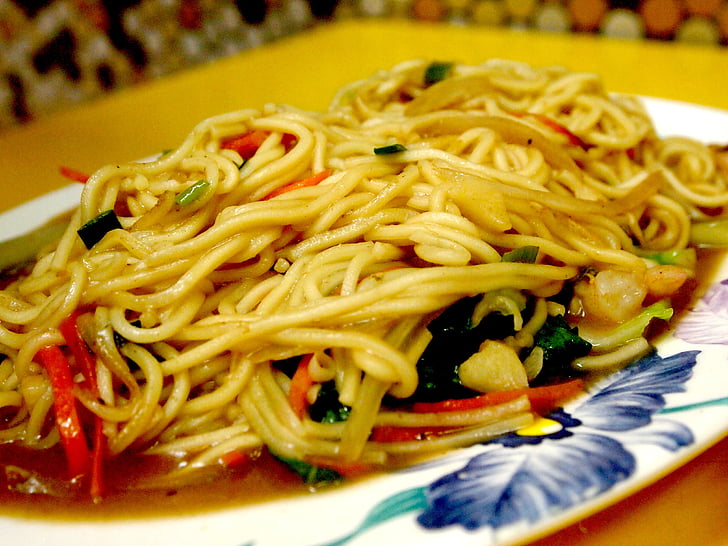Do you find yourself snacking at night, even when you’re not hungry? You’re not alone. A lot of people snack at night because they think it will help them lose weight or maintain their weight. But is that really true? In this blog post, we will explore the truth about eating at night and weight gain. We’ll look at the science behind it and discuss some tips for avoiding nighttime snacking.
Contents
Eating At Night And Weight Gain
Here are 7 solid reasons why you are gaining weight when you eat at night:
Increase hunger levels
 When you eat at night, your body releases more of the hunger-stimulating hormone ghrelin. This can make it more difficult to resist cravings and stick to a healthy diet. Studies have shown that eating at night can increase levels of ghrelin the next day, making it easier to overeat. Another study indicated that eating late at night can increase feelings of hunger and cravings the next day, leading to unnecessary snacking. This is why it’s important to keep snacks to a minimum after dinner. Furthermore, when you eat late at night, your body is unable to burn calories since it’s in a restful state.
When you eat at night, your body releases more of the hunger-stimulating hormone ghrelin. This can make it more difficult to resist cravings and stick to a healthy diet. Studies have shown that eating at night can increase levels of ghrelin the next day, making it easier to overeat. Another study indicated that eating late at night can increase feelings of hunger and cravings the next day, leading to unnecessary snacking. This is why it’s important to keep snacks to a minimum after dinner. Furthermore, when you eat late at night, your body is unable to burn calories since it’s in a restful state.
Poor food choices
When you’re exhausted and hungry late at night, it’s easy to make unhealthy food choices. Studies show that people who eat late at night are more likely to choose high-calorie foods than those who eat earlier in the day. Similar study findings suggest that late-night noshing can lead to unhealthier eating habits overall. People have reported that they are more likely to choose calorie-dense foods, like junk food, when eating late at night. Moreover, late-night eating has been linked to higher intakes of saturated fat and cholesterol, both of which can contribute to weight gain.
Overeating
Overeating at night is a common problem. One study found that people who ate late at night were three times more likely to eat too much than those who ate earlier in the day. This can easily cause weight gain since your body isn’t able to burn off all of the calories you’ve eaten. Additionally, studies have indicated that late-night eating can lead to larger portion sizes than normal. This means you’re consuming more calories without actually feeling full or satisfied. In addition to this, late-night eating can cause you to eat more the next day, resulting in even more weight gain.
Disrupt sleep
 If you eat late at night, it can disrupt your sleep. Eating close to bedtime can cause indigestion and heartburn, making it difficult to get comfortable enough for a good night’s rest. Studies also suggest that eating late at night can reduce the amount of time spent in deep sleep. This means you’ll wake up feeling tired and unfocused, which can lead to unhealthy food choices and further weight gain. This may add up to even more weight gain in the long run. What’s more, if you don’t get enough rest, it can lead to an increase in ghrelin levels the next day, which can make it even easier to overeat.
If you eat late at night, it can disrupt your sleep. Eating close to bedtime can cause indigestion and heartburn, making it difficult to get comfortable enough for a good night’s rest. Studies also suggest that eating late at night can reduce the amount of time spent in deep sleep. This means you’ll wake up feeling tired and unfocused, which can lead to unhealthy food choices and further weight gain. This may add up to even more weight gain in the long run. What’s more, if you don’t get enough rest, it can lead to an increase in ghrelin levels the next day, which can make it even easier to overeat.
Slow metabolism
Eating late at night has been linked to a slower metabolism. When your body is in a resting state, it is not able to burn off the calories you’ve eaten. This can cause weight gain in the long run. Studies have found that people who eat late at night tend to have slower metabolisms than those who eat earlier in the day. Furthermore, late-night eating has been linked to higher levels of body fat and lower muscle mass than people who eat earlier in the day.
Dehydration
Eating late at night can also lead to weight gain due to dehydration. When you eat close to bedtime, your body is unable to break down and absorb the food as efficiently as it would during the day. This can lead to water retention, which can cause bloating and weight gain. Studies have found that late-night snacking can lead to increased levels of dehydration, which can make you feel sluggish and cause weight gain. Additionally, if your body isn’t getting enough fluids, it won’t be able to burn fat as efficiently, further leading to weight gain.
Psychological effects
Eating late at night can also have a negative effect on your mental health. Studies show that people who eat late at night tend to have higher levels of stress and depression than those who eat earlier in the day. This can lead to overeating, which can cause weight gain. Additionally, late-night eating can lead to feelings of guilt and shame, which can further contribute to weight gain.
Tips To Avoid Eating at Night
 Here are some tips to help you avoid eating late at night and weight gain:
Here are some tips to help you avoid eating late at night and weight gain:
- Set a cut-off time for eating: Choose a specific time to stop eating each day. This can help you avoid the temptation of snacking late at night. Having said that, if you are genuinely hungry, then it is ok to eat something light and nutritious.
- Don’t keep tempting food in the house: Keeping high-calorie snacks, such as chips and cookies, in the house can make it harder to stick to healthy eating habits. Instead, opt for healthier snack options such as fruits, nuts, and seeds.
- Eat meals earlier in the day: Eating earlier in the day can help keep your metabolism running smoothly throughout the day. This can help prevent weight gain and make it easier to stick to a healthy diet.
- Get enough sleep: Getting enough sleep is essential for maintaining a healthy weight. When you are tired, it’s harder to resist unhealthy cravings and maintain your energy levels throughout the day. Aim for 7-9 hours of quality sleep each night to keep your weight in check.
- Get active: Exercise is one of the best ways to prevent weight gain. Aim for at least 30 minutes of physical activity each day, such as walking, jogging, or cycling. This can help boost your energy levels and keep you feeling energized throughout the day.
- Drink plenty of water: Drinking enough water is essential for keeping your body hydrated and functioning optimally. Aim to drink at least 8 glasses of water each day to keep your metabolism running smoothly and help prevent weight gain.
- Monitor your portion sizes: Portion control is key when it comes to maintaining a healthy weight. Make sure to measure out your food and stick to the recommended serving sizes for each meal. This can help you avoid overeating and weight gain.
Conclusion
Eating at night can lead to weight gain if it’s not done mindfully and in moderation. To avoid weight gain, try to limit late-night snacking and focus on eating healthy, nutritious meals throughout the day. Additionally, exercising regularly and drinking plenty of water can help keep your body in balance and prevent weight gain. With these tips in mind, you can stay on track with your health goals and enjoy a happy, healthy life!
Consider contacting FitMantra for additional information on nutrition and fitness. You can also get in touch with their nutrition experts through our online nutrition counseling, who can guide you through the process and help you achieve your fitness goals. You can also lose weight with the help of our weight loss program. Download our Fitness app on Android to learn more about us.
